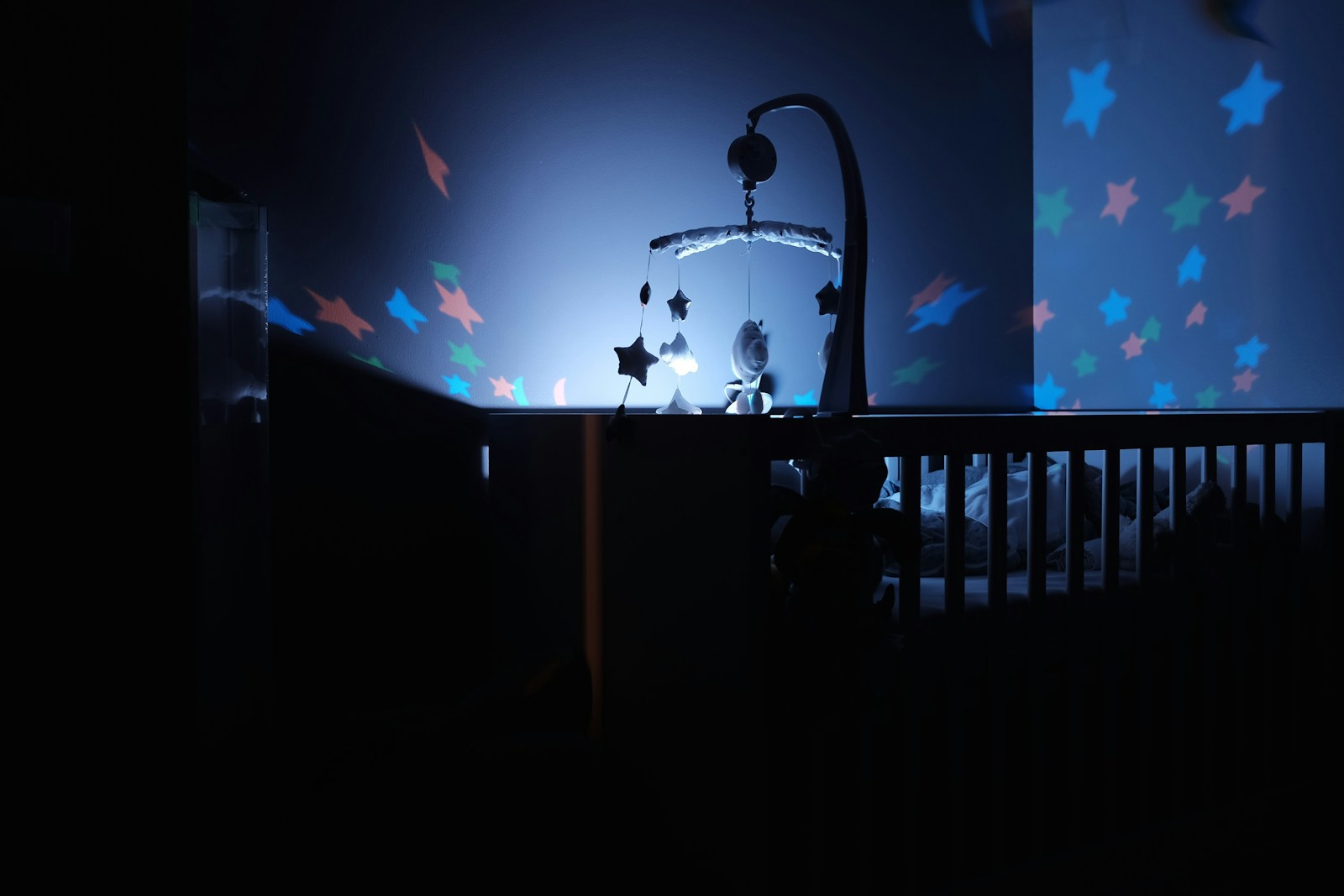In today’s fast-paced world, a good night’s sleep has become something of a luxury. With work, chores, social time, and entertainment taking precedence, sleep often falls to the bottom of our priority list. However, sleep is just as important to our physical and mental health as food and water. It is necessary to maintain critical body functions, restore energy, repair muscle tissue, and allow the brain to process new information.
Sleep deprivation can have severe consequences, both mentally and physically. It can impair your ability to think clearly, focus, react, and control your emotions. Chronic sleep deprivation has been linked to an increased risk of serious health conditions such as diabetes, cardiovascular disease, obesity, and depression. It can also weaken your immune system, making it harder for your body to fight off infections and disease.
How Much Sleep Do You Need?
The amount of sleep we need varies depending on our age. According to recommendations from the National Sleep Foundation, adults should aim for 7 to 9 hours of sleep per night. Teenagers need 8 to 10 hours, while school-age children should aim for 9 to 11 hours. Younger children have even greater sleep needs, with toddlers needing 11 to 14 hours and infants requiring 12 to 15 hours of sleep.
Several factors can influence how much sleep an individual needs. Genetics play a role in determining sleep duration and response to sleep deprivation. The quality of sleep also impacts the amount needed, with individuals who experience frequent awakenings or have trouble staying asleep requiring more sleep than those who achieve deep, uninterrupted sleep.
It’s important to note that each person has unique sleep needs, and it’s essential to listen to your body and prioritize adequate rest. If you’re unsure about your specific sleep requirements, consult with a healthcare professional for personalized guidance.
Tips and Tricks for Healthy Sleep
Establishing a sleep routine is crucial for getting better sleep. Going to bed and waking up at the same time every day, even on weekends and vacations, can train your body to fall asleep and wake up more easily. Creating a relaxing bedtime routine can also signal to your body that it’s time to wind down and prepare for sleep.
While many people enjoy sleeping with their pets, research shows that sharing a bed with animals can disrupt sleep and lower sleep quality. Consider creating a separate sleeping space for your furry friends to ensure a more restful night’s sleep.
Caffeine can interfere with sleep, even if consumed earlier in the day. It’s best to avoid caffeine-containing beverages such as tea, soft drinks, and chocolate in the late afternoon and evening to promote better sleep.
The blue light emitted by electronic devices like smartphones, tablets, and computers can interfere with the body’s natural sleep-wake cycle. To improve sleep quality, make it a habit to put away these devices at least one hour before bed.
While a nightcap may make you feel drowsy initially, alcohol can disrupt the sleep cycle and lead to poor-quality sleep. It’s best to avoid alcohol before bedtime for a more restful night’s sleep.
These are just a few tips to improve sleep quality, and there are many other strategies you can try. Experiment with different techniques to find what works best for you and prioritize healthy sleep habits.
Common Sleep Disorders
Sleep disorders are conditions that interfere with regular, restful sleep. While occasional sleep disturbances like jet lag or stress can affect sleep, chronic sleep disorders are more serious and require medical attention. Some common sleep disorders include:
- Insomnia: Insomnia is characterized by difficulty falling asleep, staying asleep, or both. It can be caused by various factors such as stress, anxiety, depression, or underlying medical conditions. Treatment for insomnia often involves addressing the underlying cause and implementing good sleep hygiene practices.
- Sleep Apnea: Sleep apnea occurs when the airway collapses or becomes blocked during sleep, leading to pauses in breathing. It can cause loud snoring, gasping for air during sleep, and excessive daytime sleepiness. Treatment options for sleep apnea include lifestyle changes, such as weight loss and avoiding alcohol, as well as the use of continuous positive airway pressure (CPAP) machines.
- Narcolepsy: Narcolepsy is a neurological disorder characterized by excessive daytime sleepiness and sudden, uncontrollable sleep attacks. It can also cause other symptoms such as cataplexy (sudden loss of muscle tone), sleep paralysis, and hallucinations. Treatment for narcolepsy may involve medications to manage symptoms and lifestyle adjustments.
- Restless Leg Syndrome (RLS): RLS is a condition characterized by an uncontrollable urge to move the legs, often accompanied by uncomfortable sensations. Symptoms typically worsen during periods of inactivity or at night, leading to sleep disturbances. Treatment options for RLS include lifestyle changes, medications, and iron supplements.
- Parasomnias: Parasomnias are abnormal behaviors or movements during sleep, such as sleepwalking, night terrors, nightmares, or talking in one’s sleep. Treatment for parasomnias may involve addressing underlying causes, improving sleep hygiene, and, in some cases, medications.
If you suspect you have a sleep disorder, it’s essential to consult with a healthcare professional for an accurate diagnosis and appropriate treatment plan. Proper diagnosis and treatment can significantly improve sleep quality and overall well-being.
Sleep Apnea: Causes, Symptoms, and Treatment
Sleep apnea is a common sleep disorder characterized by pauses in breathing during sleep. These pauses, known as apneas, can range from a few seconds to minutes and can occur multiple times throughout the night. Sleep apnea can be caused by various factors, including:
- Obstructive Sleep Apnea (OSA): OSA is the most common type of sleep apnea and occurs when the muscles in the back of the throat fail to keep the airway open. This can be due to factors such as obesity, large tonsils, or a narrow airway.
- Central Sleep Apnea (CSA): CSA is less common and occurs when the brain fails to send the proper signals to the muscles that control breathing during sleep.
- Complex Sleep Apnea Syndrome (CompSA): CompSA is a combination of both obstructive and central sleep apnea.
The most common symptom of sleep apnea is loud snoring, often accompanied by gasping or choking sounds as breathing resumes. Other symptoms may include excessive daytime sleepiness, morning headaches, irritability, and difficulty concentrating.
If left untreated, sleep apnea can lead to serious health complications, including high blood pressure, heart disease, stroke, and diabetes. Treatment options for sleep apnea include:
- Lifestyle Changes: Making lifestyle modifications such as losing weight, quitting smoking, avoiding alcohol and sedatives, and sleeping on your side can help alleviate symptoms of sleep apnea.
- Continuous Positive Airway Pressure (CPAP): CPAP is a common treatment for sleep apnea. It involves wearing a mask that delivers a continuous stream of pressurized air to keep the airway open during sleep.
- Oral Appliances: Oral appliances, such as mandibular advancement devices, can help reposition the jaw and tongue to keep the airway open during sleep.
- Surgery: In some cases, surgical intervention may be necessary to correct structural abnormalities that contribute to sleep apnea. Surgical options include removing excess tissue from the throat, repositioning the jaw, or inserting implants to provide support to the airway.
It’s important to consult with a healthcare professional to determine the most appropriate treatment for sleep apnea based on individual circumstances and medical history.
Sleep Paralysis: Causes, Symptoms, and Treatment
Sleep paralysis is a temporary loss of muscle control and function that occurs either right before falling asleep or upon waking up. During sleep paralysis episodes, individuals may be unable to move their limbs, body, or head, despite being fully conscious. These episodes can last for a few seconds to several minutes and can be accompanied by hallucinations and a feeling of pressure on the chest.
Sleep paralysis is relatively common, with an estimated 7 percent of people experiencing it at some point in their lives. It is often associated with other sleep disorders, such as narcolepsy. The exact cause of sleep paralysis is not fully understood, but it is thought to be related to disrupted REM sleep and the transition between sleep stages.
While sleep paralysis itself is not harmful, it can be a distressing experience. Treatment for sleep paralysis primarily focuses on addressing any underlying conditions or factors that contribute to its occurrence. This may include treating sleep disorders like narcolepsy or improving sleep hygiene practices.
Individuals who experience sleep paralysis may also find comfort in learning relaxation techniques or participating in therapy to better manage anxiety or stress that may be contributing to their symptoms. It can be helpful to create a calm and comfortable sleep environment and establish a regular sleep routine to promote better sleep quality and reduce the likelihood of experiencing sleep paralysis episodes.
Sleep and Insomnia: Causes, Symptoms, and Treatment
Insomnia is the most common sleep disorder, affecting approximately one-third of adults. It is characterized by difficulty falling asleep, staying asleep, or both. Insomnia can be caused by various factors, including stress, anxiety, depression, medical conditions, certain medications, and poor sleep hygiene.
The symptoms of insomnia can vary but often include:
- Difficulty falling asleep
- Waking up frequently during the night
- Waking up too early and being unable to fall back asleep
- Feeling unrefreshed after sleep
- Daytime sleepiness and fatigue
- Irritability and difficulty concentrating
The treatment of insomnia depends on the underlying cause and severity of symptoms. In some cases, addressing the underlying cause, such as managing stress or treating an underlying medical condition, may help alleviate insomnia symptoms. Other treatment options for insomnia include:
- Cognitive Behavioral Therapy (CBT): CBT is a type of therapy that focuses on changing behaviors and thought patterns that contribute to insomnia. It can help individuals develop healthy sleep habits, address anxiety or stress, and improve relaxation techniques.
- Sleep Hygiene: Improving sleep hygiene involves adopting healthy sleep habits, such as maintaining a regular sleep schedule, creating a comfortable sleep environment, and avoiding stimulants like caffeine and electronics before bed.
- Medications: In some cases, medications may be prescribed to help manage insomnia symptoms. These may include over-the-counter sleep aids or prescription medications that promote sleep.
- Lifestyle Changes: Making lifestyle modifications, such as regular exercise, relaxation techniques, and stress management, can also help improve sleep quality and reduce insomnia symptoms.
It’s important to consult with a healthcare professional to determine the most appropriate treatment options for insomnia based on individual circumstances and medical history. Combining various treatment modalities, such as therapy, medication, and lifestyle changes, can often provide the best outcomes for managing insomnia.
Sleep Deprivation: Effects and Consequences
Sleep deprivation is a widespread issue, with approximately 35.2 percent of American adults getting fewer than 7 hours of sleep per night. Chronic sleep deprivation, which occurs when individuals consistently don’t get enough sleep, can have severe consequences on overall health and well-being.
The effects of sleep deprivation can be both immediate and long-term. In the short term, sleep deprivation can cause:
- Fatigue and decreased energy levels
- Difficulty concentrating and impaired cognitive function
- Mood changes and irritability
- Reduced coordination and increased risk of accidents
- Weakened immune system, making individuals more susceptible to infections
Long-term sleep deprivation has been associated with an increased risk of various health conditions, including:
- Obesity: Lack of sleep can disrupt hormones involved in appetite regulation, leading to increased food cravings and weight gain.
- Cardiovascular Disease: Chronic sleep deprivation has been linked to an increased risk of high blood pressure, heart disease, and stroke.
- Diabetes: Sleep deprivation can impair insulin sensitivity and glucose metabolism, increasing the risk of developing type 2 diabetes.
- Mental Health Disorders: Sleep deprivation is strongly associated with an increased risk of developing mental health conditions such as depression and anxiety.
- Cognitive Decline: Chronic sleep deprivation has been linked to cognitive decline and an increased risk of neurodegenerative diseases such as Alzheimer’s.
To mitigate the effects of sleep deprivation, it’s important to prioritize healthy sleep habits and ensure adequate sleep duration. Establishing a consistent sleep schedule, creating a sleep-friendly environment, and practicing relaxation techniques can help improve sleep quality and quantity. Additionally, addressing underlying factors that contribute to sleep deprivation, such as stress or medical conditions, is essential for overall well-being.
Sleep Benefits: Why Healthy Sleep is Important
Getting a good night’s sleep has numerous benefits for both physical and mental health. In addition to warding off short-term issues like fatigue and trouble concentrating, good-quality sleep can help prevent serious long-term health conditions and promote optimal well-being.
Some of the benefits of healthy sleep include:
- Reduced Inflammation: Sleep loss has been associated with increased inflammatory markers in the body, which can contribute to chronic health conditions such as inflammatory bowel disease (IBD).
- Improved Concentration and Performance: Adequate sleep is linked to enhanced cognitive function, memory, and concentration, leading to improved productivity and performance in daily activities.
- Healthy Weight Management: Sleep deprivation disrupts hunger-regulating hormones, leading to increased appetite and cravings for high-calorie, unhealthy foods. Getting enough sleep can help support weight management efforts.
- Decreased Risk of Heart Disease and Stroke: Poor sleep quality and duration are associated with an increased risk of cardiovascular diseases such as heart disease and stroke. Prioritizing healthy sleep can help reduce these risks.
- Lower Risk of Depression: Sleep deprivation is closely linked to an increased risk of depression and other mental health disorders. Prioritizing healthy sleep habits can contribute to better mental well-being.
It’s important to recognize that healthy sleep is not just about preventing tiredness or dark circles under the eyes. It plays a critical role in overall health and should be prioritized alongside other aspects of a healthy lifestyle, such as a balanced diet and regular exercise.
Sleep Treatment: Finding the Right Solution
The treatment of sleep problems depends on the specific sleep disorder and individual circumstances. Various treatment options are available, ranging from lifestyle changes to medical interventions. The choice of treatment will depend on factors such as the underlying cause of the sleep problem, the severity of symptoms, and individual preferences.
Some common sleep treatments include:
- Sleeping Pills: Sleeping pills can be used on a short-term basis to promote sleep, especially for individuals experiencing temporary sleep disturbances. However, long-term use of sleeping pills can lead to dependence and should be carefully monitored.
- Natural Sleep Aids: Many natural sleep aids, such as melatonin supplements, valerian root, and lavender aromatherapy, are available. These can be used as alternatives to prescription medications and may help promote better sleep.
- Therapy: Cognitive Behavioral Therapy for Insomnia (CBT-I) is an evidence-based therapy that helps individuals identify and change behaviors and thoughts that contribute to sleep problems. It can be particularly effective for chronic insomnia.
- Essential Oils: Some essential oils, such as lavender, clary sage, and sleep blends, have relaxing properties that can promote better sleep. These oils can be used topically or diffused in the bedroom.
- Hypnosis: Hypnosis can help individuals relax and prepare for sleep. It can be effective in reducing anxiety and stress-related sleep problems.
- Guided Meditation: Guided meditation involves focusing the mind on relaxation and sleep-promoting thoughts or imagery. It can help calm the mind and induce a state of relaxation conducive to sleep.
It’s important to consult with a healthcare professional to determine the most appropriate treatment options for sleep problems. They can provide personalized recommendations based on individual circumstances and help monitor progress throughout the treatment process.






